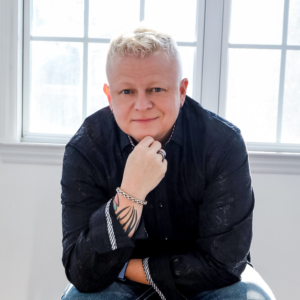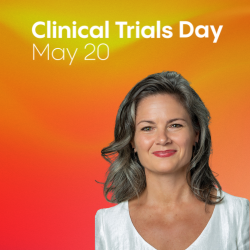Clinical trials are not adequately serving a growing LGBTQ+ population, and the lack of inclusion could put the health of millions at risk, undermine the efficacy of study data, and slow development of critical drugs and treatments, panelists for an ACRP roundtable in honor of Pride Month warned on June 14.
“An overwhelming majority of people don’t know about these issues, and this is why this discussion is so important,” said panelist Rosamund Round, vice president with the Patient Innovation Center at Parexel.
“If we’re not stepping up as an industry to ask the questions to give [the LGBTQ+ community] options, we are missing opportunities, but we’re also not being inclusive or creating a sense of belonging, and ultimately, we are doing a disservice to the community at large,” said panel moderator Jamie Langley, RN, MSN, global head for the Parexel Academy. “We are falling short as an industry in terms of being inclusive in our approach to data collection.”
In today’s environment, we are “missing some important data,” agreed panelist Liam Paschall, senior consultant for learning and development at Parexel and a Transgender Patient Advocacy Group member.
Paschall, recently named one of LinkedIn’s Top 10 LGBTQIA+ Voices, called on industry to turn the tide against “frustrations and mistrust” in the transgender and nonbinary populations regarding clinical trials and the healthcare industry in general.
“We can all recognize and agree that the [U.S. Food and Drug Administration] in particular has said this is what we must do when it comes to [promoting clinical trial diversity in] race and ethnicity, [but] what about everybody else?” Langley asked the group. “What about all the other marginalized communities and underserved populations? And it is not just LGBTQ+, but starting here is critical because there are a lot of unknowns.”
“At Bristol Myers Squib [BMS] we’re working on issues like internal company culture [and] diverse recruiting, and I’ve also had the chance to focus on LGBTQ health equity,” said Paul Shay, lead for the People and Business Resource Group PRIDE Alliance at BMS. “Broadly speaking, when people think about the concept of LGBTQ health equity they probably think first about HIV/AIDS [or] gender affirming care for transgender individuals, which are obviously important issues, but [with] my company having a focus on oncology, hematology, [and] cardiovascular [therapies], I’ve tried to think about that question from [the viewpoint of] those therapeutic areas.”
Panelists also turned their attention to specific actions industry should consider to improve upon diversity levels in clinical research.
“There are practical things you can do at a [clinical trial] site to make people feel more welcome,” Round said. “For example, make sure staff are appropriately trained with cultural awareness and empathy. Provide restrooms that are gender neutral. Establish a safe space [where people can share information] because people may not have told their families they are transgender or nonbinary.”
“There’s lots you can do even before the clinical trial starts to be more inclusive of the LGBTQ+ population,” Paschall said. “It starts with representing LGBTQ+ people in your marketing materials. Sites need to have people who look like us. We need to see that. Ask what their pronouns are and share yours. It’s a matter of respect and showing you are trying to be inclusive.”
Round finished with a call to action. “We want to be more inclusive as an industry and we shouldn’t exclude people from research purely because [others] aren’t clear on some of the different [issues involved], particularly when [it comes to research] for a critical, life-saving drug. We can’t exclude a group of people just because we don’t quite know what to do.”
Author: Michael Causey



